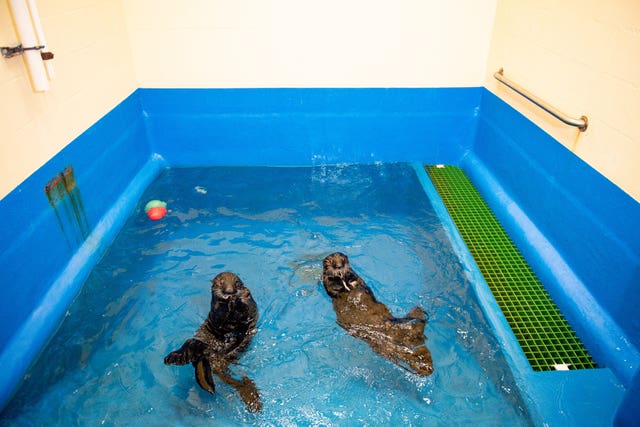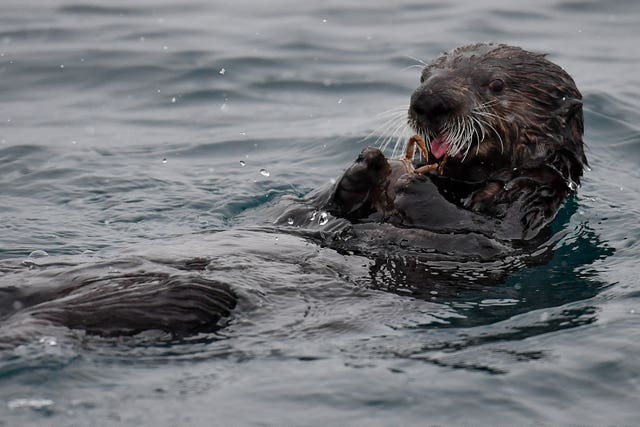
A pair of rare Alaskan sea otters are getting settled into their new home in a UK first, as part of a conservation project to boost awareness.
The rescue pair, who were orphaned, are being transported more than 5,000 miles by land and air to take up residence at the National Sea Life Centre in Birmingham.
Once prized by 19th century hunters for their thick, rich pelts, they had been pushed to the brink of extinction and are still listed as endangered.
It is hoped the UK pair, taking up residence in a new temperature-controlled multimillion-pound enclosure, will play a key role in a Sea Life Trust-partnered programme to educate visitors about global marine life and climate change.
After a process taking more than two years, US wildlife authorities granted the UK a guardianship application permit to bring the otters to the country – for the first time.

Jonny Rudd, Birmingham Sea Life Centre curator, said: “This is such an incredibly exciting time for us.
“It’s been a pioneering project for the country, taking global efforts and a collective vision with our conservation partners to protect the world’s oceans and the incredible marine life which lives within.

“Sadly, an ‘out of sight, out of mind’ mentality can have detrimental consequences to our planet, but this is now our opportunity to open up the reality of a world which feels very far removed from our own.
“The sea otters’ arrival will be a landmark moment for the UK and give us a sense of connection to nature and wildlife from across the globe, highlighting the unconscious impact we’re having so we can start to make small differences.”
He added that under the agreement, money raised through the otters’ UK residency, will go to help efforts on the ground back in Alaska.
The otters, which consume up to a third of their body weight each day in food, can live for up to 20 years in the wild.


Comments: Our rules
We want our comments to be a lively and valuable part of our community - a place where readers can debate and engage with the most important local issues. The ability to comment on our stories is a privilege, not a right, however, and that privilege may be withdrawn if it is abused or misused.
Please report any comments that break our rules.
Read the rules here